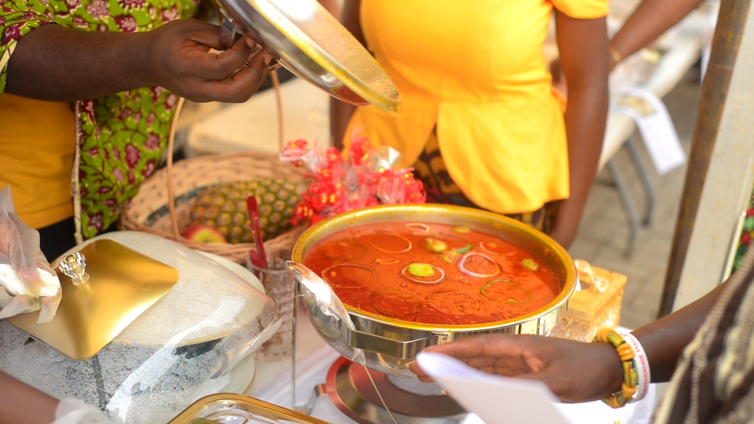Our diet and taste as a people have changed over time and that change is for the worse, says Dr. Abena Tannor, a World Health Organization Consultant.
According to her, there is a lack of knowledge about the nutritional value of local foods and spices, which contributes to people opting for new spice brands that are high in sodium.
“The majority of the foods we consume now are not healthy,” emphasized Dr. Tannor when she joined David Akuetteh for a conversation on local foods as part of the Ghana Month series on Luv Fm.
“We don’t eat to just fill our tummy; we eat for the nutritional benefit of the food… and sometimes we also eat because some of the nutrients help protect us against diseases,” said the Family Physician.

Some local foods that are seldom consumed include Akapitin, Mpapa, Akaw, Apiti, Mpotompoto, Nuhu, Aporonsu, Ofam, Nyentsira, Adibi, Kafa, Fomfom and Apepresan.
“Ofam is highly nutritious because of the ingredients used in its preparation. It is very healthy too,” said Dr. Tannor.
She also spoke about the importance of using palm oil in the preparation of most indigenous foods, as it helps protect against cancers and is also good for the eyes.
“Palm oil has Vitamin A and E and is really good for us. It’s something that we can actually use in preparing a lot of our meals and it’s available locally,” she said.
“The leaves used in packaging waakye adds flavor to the waakye and also, it’s medicinal. It reduces cholesterol in the blood.
“Cooking cocoyam without peeling is very nutritious. It is even easy to cook and that process helps to keep some of the nutrients in the cocoyam,” she said.
She believes the media has a great role to play in encouraging the populace to include indigenous food in their menu.
“These cooking competitions shown on TV could dedicate some time for Ghanaian meals,” she admonished, adding that TV commercials related to food can inculcate aspects on indigenous ingredients to wet appetite for local cuisine.
She also said innovative ways of eating Ghanaian meals can be explored by reducing the time of preparation and also enhancing their preservation.
“We must also look at the prices of the local foods and ingredients. Some of them are expensive”.
Dr. Tannor, however, says it is better to spend time cooking and eating good healthy local delicacies than to spend less time eating junk food that has adverse health implications.
Latest Stories
-
Gold Fields Ghana Foundation challenges graduates to maximize benefits of community apprenticeship programme
13 mins -
GBC accuses Deputy Information Minister Sylvester Tetteh of demolishing its bungalow illegally
25 mins -
Boost for education as government commissions 80 projects
36 mins -
NAPO commissions library to honour Atta-Mills’ memory
47 mins -
OmniBSIC Bank champions health and wellness with thriving community walk
49 mins -
Kora Wearables unveils Neo: The Ultimate Smartwatch for Ghana’s tech-savvy and health-conscious users
53 mins -
NDC supports Dampare’s ‘no guns at polling stations’ directive
55 mins -
Police officer interdicted after video of assault goes viral
1 hour -
KNUST’s Prof. Reginald Annan named first African recipient of World Cancer Research Fund
1 hour -
George Twum-Barimah-Adu pledges inclusive cabinet with Minority and Majority leaders
2 hours -
Labourer jailed 5 years for inflicting cutlass wounds on businessman
2 hours -
Parliament urged to fast-track passage of Road Traffic Amendment Bill
2 hours -
Mr Daniel Kofi Asante aka Electrician
2 hours -
Minerals Commission, Solidaridad unveils forum to tackle child labour in mining sector
2 hours -
Election 2024: Engagement with security services productive – NDC
2 hours

